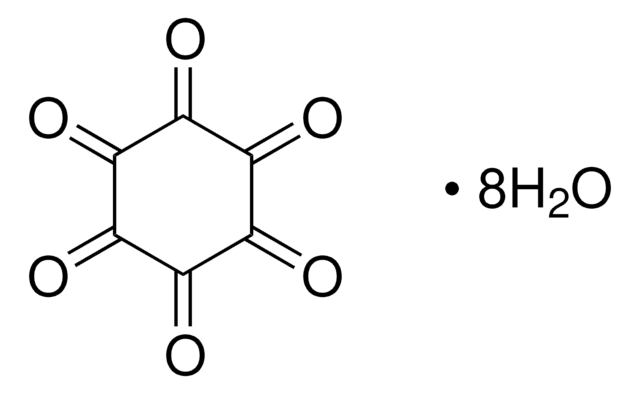324877
Focal Adhesion Kinase Inhibitor I
The Focal Adhesion Kinase Inhibitor I, also referenced under CAS 4506-66-5, controls the biological activity of Foca Adhesion Kinase. This small molecule/inhibitor is primarily used for Phosphorylation & Dephosphorylation applications.
Synonym(s):
Focal Adhesion Kinase Inhibitor I, FAK Inhibitor I, 1,2,4,5-Benzenetetraamine, 4HCl, NSC 667249
About This Item
Recommended Products
Quality Level
Assay
≥95% (elemental analysis)
form
solid
manufacturer/tradename
Calbiochem®
storage condition
OK to freeze
desiccated (hygroscopic)
protect from light
color
gray
solubility
water: 14 mg/mL
DMSO: 50 mg/mL
shipped in
ambient
storage temp.
2-8°C
InChI
1S/C6H10N4.4ClH/c7-3-1-4(8)6(10)2-5(3)9;;;;/h1-2H,7-10H2;4*1H
InChI key
BZDGCIJWPWHAOF-UHFFFAOYSA-N
General description
Packaging
Warning
Reconstitution
Other Notes
Legal Information
Storage Class Code
11 - Combustible Solids
WGK
WGK 3
Flash Point(F)
Not applicable
Flash Point(C)
Not applicable
Certificates of Analysis (COA)
Search for Certificates of Analysis (COA) by entering the products Lot/Batch Number. Lot and Batch Numbers can be found on a product’s label following the words ‘Lot’ or ‘Batch’.
Already Own This Product?
Find documentation for the products that you have recently purchased in the Document Library.
Our team of scientists has experience in all areas of research including Life Science, Material Science, Chemical Synthesis, Chromatography, Analytical and many others.
Contact Technical Service







